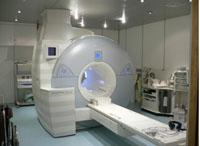
July 19, 2011 – Advancements in the medical sciences, imaging technology and magnetic resonance (MR) clinical applications have created specialty areas in the MR profession, according to a study published in the July/August 2011 issue of Radiologic Technology, a journal of the American Society of Radiologic Technologists.
Michael L. Grey, Ph.D., R.T.(R)(MR)(CT), associate professor at Southern Illinois University in Carbondale, examined the results of an MR practice analysis questionnaire distributed to a random sample of registered MR technologists by the American Registry of Radiologic Technologists. Participants were asked to describe the type and frequency of procedures they performed.
Grey analyzed 78 MR tasks outlined in the survey results and found four imaging task groups that were consistently used in MR practice. Out of the four areas, three MR specialty areas emerged: vascular/cardiovascular imaging, central nervous system imaging and musculoskeletal imaging.
“When I was doing the study, I noticed that there were commonalities in each factor,” said Grey. “As I dug deeper, I discovered that MR specialty areas have developed over time.”
The research results indicate that as new MR applications are developed, education and training programs will be needed to meet the demands of the imaging community. Additionally, the survey results point to the need for the ARRT to consider developing advanced specialty certification examinations to provide opportunities to the technologists operating MR units in the new specialty areas.
However, Grey said that before specialty certification exams can be developed, the radiologic science community must address the current absence of established educational requirements in the MR discipline. “We can’t lose sight of the fact that there are no formal education or internship requirements in place at this time for individuals who practice MR,” said Grey. “As MR continues to develop and the technology improves, it’s going to open up new doors for what we can image next. Therefore, formal education and training protocols should be in place before technologists take the MR Registry exam so they are prepared to effectively practice in the area."
For more information: www.asrt.org


 July 25, 2024
July 25, 2024 








